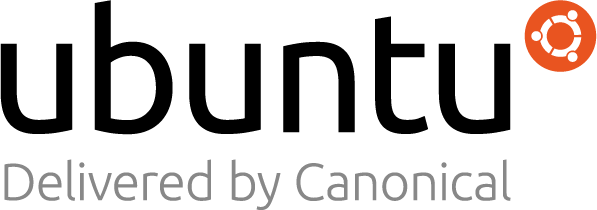

Overview

Product video
This is a repackaged open source software wherein additional charges apply for extended support with a 24 hour response time.
Overview
Deploy and manage your containerized applications seamlessly with Docker on Ubuntu 22. This AMI provides a fully configured environment optimized for running Docker, making it ideal for developers and operations teams looking to leverage the power of containerization.
Features
- Pre-Configured Environment: This image comes with Docker pre-installed and configured, reducing the time spent on setup and allowing you to hit the ground running.
- Ubuntu 22 Base: Build on a stable and widely-used Linux distribution known for its robust performance and extensive community support.
- Enhanced Security: Benefit from the latest security updates and features available in Ubuntu 22 while utilizing Docker's containerization for added security layers.
- Scalable Architecture: Easily scale your applications with Docker's orchestration capabilities, making it suitable for both small projects and large-scale deployments.
Benefits
- Rapid Deployment: Quickly launch instances without worrying about manual installations and configuration tasks.
- Flexibility: Utilize Docker containers to run any application, supporting a wide range of programming languages and frameworks.
- Cost-Effectiveness: Optimizes resource usage by isolating applications, hence allowing multiple workloads to share the same host without conflicts.
Use Cases
- Microservices Architecture: Perfect for organizations adopting microservices, allowing teams to develop, test, and deploy services independently.
- Development and Testing: Streamline your CI/CD pipeline by spinning up containers for fast build, test, and deploy cycles.
- Stateless Applications: Ideal for deploying web applications that maintain no persistent state, facilitating easier scaling and management.
Leverage the flexibility and robustness of Docker on Ubuntu 22 to innovate, deploy, and manage your applications with unparalleled efficiency.
Try our most popular AMIs on AWS EC2
- Ubuntu 24.04 AMI on AWS EC2
- Ubuntu 22.04 AMI on AWS EC2
- Ubuntu 20.04 AMI on AWS EC2
- Ubuntu 18.04 AMI on AWS EC2
- CentOS 10 AMI on AWS EC2
- CentOS 9 AMI on AWS EC2
- CentOS 8 AMI on AWS EC2
- Debian 12 AMI on AWS EC2
- Debian 11 AMI on AWS EC2
- Debian 10 AMI on AWS EC2
- Debian 9 AMI on AWS EC2
- Red Hat Enterprise Linux 9 (RHEL 9) AMI on AWS EC2
- Red Hat Enterprise Linux 8 (RHEL 8) AMI on AWS EC2
- Red Hat Enterprise Linux 7 (RHEL 7) AMI on AWS EC2
- Oracle Linux 9 AMI on AWS EC2
- Oracle Linux 8 AMI on AWS EC2
- Oracle Linux 7 AMI on AWS EC2
- Amazon Linux 2023 AMI on AWS EC2
- Windows 2022 Server AMI on AWS EC2
- Windows 2019 Server AMI on AWS EC2
- Docker on Ubuntu 22 AMI on AWS EC2
- Docker on CentOS 10 AMI on AWS EC2
Highlights
- Experience seamless application containerization with Docker on Ubuntu 22, offering robust support for microservices architecture. Users can deploy, manage, and scale applications in isolated environments, enhancing development workflow. Its compatibility with numerous languages and frameworks allows for flexible coding practices, making it ideal for teams employing CI/CD pipelines and agile methodologies.
- Utilize the efficient resource management capabilities provided by Docker on Ubuntu 22, enabling high-density deployments and reducing infrastructure costs. With built-in networking and storage features, developers can ensure secure communication between containers while optimizing data persistence. This facilitates reliable application performance even under varying workloads, making it suitable for both development and production environments.
- Gain access to a vast ecosystem of pre-built images and community support through Docker Hub. This expedites the bootstrapping process of new projects and allows developers to leverage existing solutions quickly. Additionally, extensive documentation and community contributions provide valuable resources for troubleshooting and best practices, empowering teams to maximize productivity and innovation.
Details
Typical total price
$8.935/hour
Features and programs
Financing for AWS Marketplace purchases

Pricing
- ...
Instance type | Product cost/hour | EC2 cost/hour | Total/hour |
|---|---|---|---|
t1.micro | $0.07 | $0.02 | $0.09 |
t2.nano | $0.07 | $0.006 | $0.076 |
t2.micro AWS Free Tier | $0.21 | $0.012 | $0.222 |
t2.small | $0.07 | $0.023 | $0.093 |
t2.medium | $0.14 | $0.046 | $0.186 |
t2.large | $0.14 | $0.093 | $0.233 |
t2.xlarge | $0.28 | $0.186 | $0.466 |
t2.2xlarge | $0.56 | $0.371 | $0.931 |
t3.nano | $0.07 | $0.005 | $0.075 |
t3.micro AWS Free Tier | $0.07 | $0.01 | $0.08 |
Additional AWS infrastructure costs
Type | Cost |
|---|---|
EBS General Purpose SSD (gp2) volumes | $0.10/per GB/month of provisioned storage |
Vendor refund policy
The instance can be terminated at anytime to stop incurring charges
Legal
Vendor terms and conditions
Content disclaimer
Delivery details
64-bit (x86) Amazon Machine Image (AMI)
Amazon Machine Image (AMI)
An AMI is a virtual image that provides the information required to launch an instance. Amazon EC2 (Elastic Compute Cloud) instances are virtual servers on which you can run your applications and workloads, offering varying combinations of CPU, memory, storage, and networking resources. You can launch as many instances from as many different AMIs as you need.
Version release notes
System updates
Additional details
Usage instructions
Once the instance is running, connect to it using a Secure Shell (SSH) client with the configured SSH key. The default username is 'ubuntu'.
OS commands via SSH: SSH as user 'ubuntu' to the running instance and use sudo to run commands requiring root access.
Run docker test with:
sudo docker run hello-world
Resources
Vendor resources
Support
Vendor support
Email support for this AMI is available through the following: https://supportedimages.com/support/ OR support@supportedimages.com
AWS infrastructure support
AWS Support is a one-on-one, fast-response support channel that is staffed 24x7x365 with experienced and technical support engineers. The service helps customers of all sizes and technical abilities to successfully utilize the products and features provided by Amazon Web Services.
Similar products



